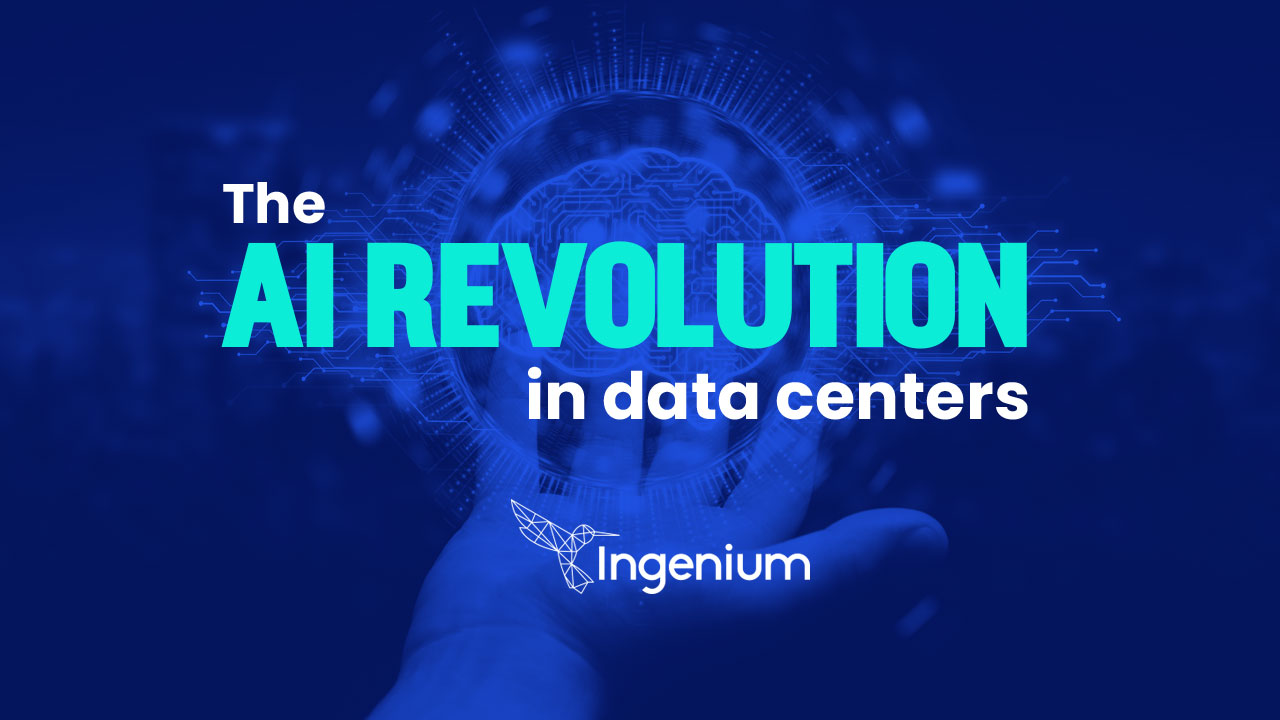In recent years, artificial intelligence (AI) has left a significant footprint in numerous fields and sectors, and one of the areas where AI has had a transformative impact is in data centers. These critical infrastructures have found in AI an invaluable tool to improve their operational efficiency, optimize their resources and increase their processing capacity.
Gartner estimates that the AI market will be worth more than $134 trillion by 2025. These figures are driven by the reduction of manual processes, the automation of tasks, the collection and recognition of information and even extending the useful life of equipment; Factors that regain special importance in the data center.
The democratization of this type of intelligence is here to stay in the data center industry, human interaction with robots or machines that will perform repetitive or daily tasks will be increasingly common, while the personnel that operate the infrastructures will be able to dedicate themselves to strategic tasks that will drive business growth.
Change management
Including AI strategies in the data processing sector involves using it in daily operations, training staff and creating a true culture of change towards new ways of performing company processes. According to Gartner over the next five years, organizations will adopt more reliable, responsible and environmentally sustainable AI applications.
Although artificial intelligence is advancing by leaps and bounds, it still presents challenges for the teams implementing these solutions. Therefore, it is necessary to provide staff with the strategic vision of the business and define a clear path of change and evolution towards emerging technologies.
The same report of the consulting firm reveals that in 2025 more than 50% of companies will have devised AI orchestration platforms to put it into operation.
Optimization and Efficiency for Data Centers
One of the biggest challenges in data centers is the efficient management of resources, such as power, cooling, physical space and processing capacity itself. AI has made it possible to develop algorithms and intelligent management systems that optimize the use of these resources.
For example, AI systems can analyze energy consumption patterns in real time and adjust electrical distribution to minimize waste. They can also regulate temperature and cooling systems precisely, preventing overheating and reducing operating costs.
Artificial intelligence is already contributing to the industry to be more efficient in processes, but it also stands out in several fundamental aspects for our industry:
-
Efficiency in data processing
AI has also significantly improved the efficiency of data processing. Machine learning algorithms and natural language processing have made it possible to develop artificial intelligence systems capable of analyzing large volumes of data quickly and accurately.
This has made it possible to automate repetitive tasks and make intelligent decisions in real time. Data centers can now process and analyze complex information more efficiently, making it easier to identify patterns, detect anomalies, and generate valuable insights for organizations.
-
Safety and predictive maintenance
Data center security is a primary concern, and AI has proven to be an effective tool in this regard. Artificial intelligence systems can constantly monitor the network and security systems, detecting potential threats and acting proactively to prevent attacks.
-
Failure prevention
AI enables predictive maintenance, as it can analyze historical and real-time data to predict failures or potential problems in equipment. This facilitates the planning of preventive maintenance, reducing downtime and improving the availability of services.
-
Sustainability
Data intelligence allows you to establish the use of energy within the data center and know which equipment is consuming more KW. The optimization of the equipment allows to reduce the loss of energy contributing to the reduction of the carbon footprint.
While it is true that the debate on the scope of AI has resurfaced, the truth is that the benefits of these technologies lead to business success and respond to the digitalization strategies that users increasingly demand.
As he points out Gartner, organizations will continue to look to artificial intelligence as a way to improve their decision-making processes. Those that have the acumen to adopt these methods quickly will be able to differentiate themselves more from the competition and gain agility and responsiveness to ecosystem changes. cambios del ecosistema.
AI from the expert eye
 Juan Carlos Londoño is Pre-Sales Director of Ingenium and has extensive experience in the data center industry, has led large projects in the Latin American region. We chatted with him and here's his perspective on AI:
Juan Carlos Londoño is Pre-Sales Director of Ingenium and has extensive experience in the data center industry, has led large projects in the Latin American region. We chatted with him and here's his perspective on AI:
Why is AI becoming a tool that drives data center optimization?
"AI can help optimization from different aspects:
- A) Automated Operation: performing routine and repetitive tasks of the daily operation of the data center, analyzing trends and multiple variables in a faster way than people, helping them to make correct decisions in a more agile or even anticipated way, for example, anticipating possible component failures or the need to replace parts or spare parts proactively, through predictive maintenance.
- B) Energy efficiency management: through automated adjustments of cooling system control, automatic shutdown of IT equipment with low workload, among others.
- C) Capacity management: for example, dynamically adjusting the workloads of the hybrid IT environment (loads that are supported in the Enterprise DC itself and the loads that are carried to the Cloud to a third-party provider); analyzing much faster than people, the different variables of physical space, electrical capacity, cooling capacity, electrical density of new equipment or cabinets, to more efficiently manage the capacity of the physical infrastructure of the data center."
To what extent has AI been adopted in DC projects in Latam?
"In general, we are at an insipient stage where AI is just beginning to be implemented in the region. Manufacturers of physical infrastructure equipment are increasingly integrating automated tuning features based on AI developments into their new models."
What actions are already a reality thanks to AI?
"It is increasingly common to see more integrations and better automations in physical infrastructure management platforms (BMS / DCIM) and IT infrastructure (ITSM, virtualization management hypervisors), oriented to the 3 aspects indicated in the first answer. There are also already design tools that, using AI and Augmented Reality, facilitate the process of designing and building DC projects."
In the future, what do you consider to be the most important milestones of AI in the data center?
"In the future we will have greater participation of AI in the operation of DCs, facilitating the work of those responsible for day-to-day operation, but not replacing operators, since they will continue to be needed to supervise the tasks performed or recommendations provided by AI, to make decisions, especially when things "go off the chart"; and to implement new technologies and processes.
AI will also allow for better physical security of DC environments, helping those responsible for physical security to more quickly identify intrusions or unauthorized access.
Managing IT capacity and physical infrastructure, and energy efficiency, and how to make them increasingly efficient and optimized, will certainly continue to advance AI over the years."



